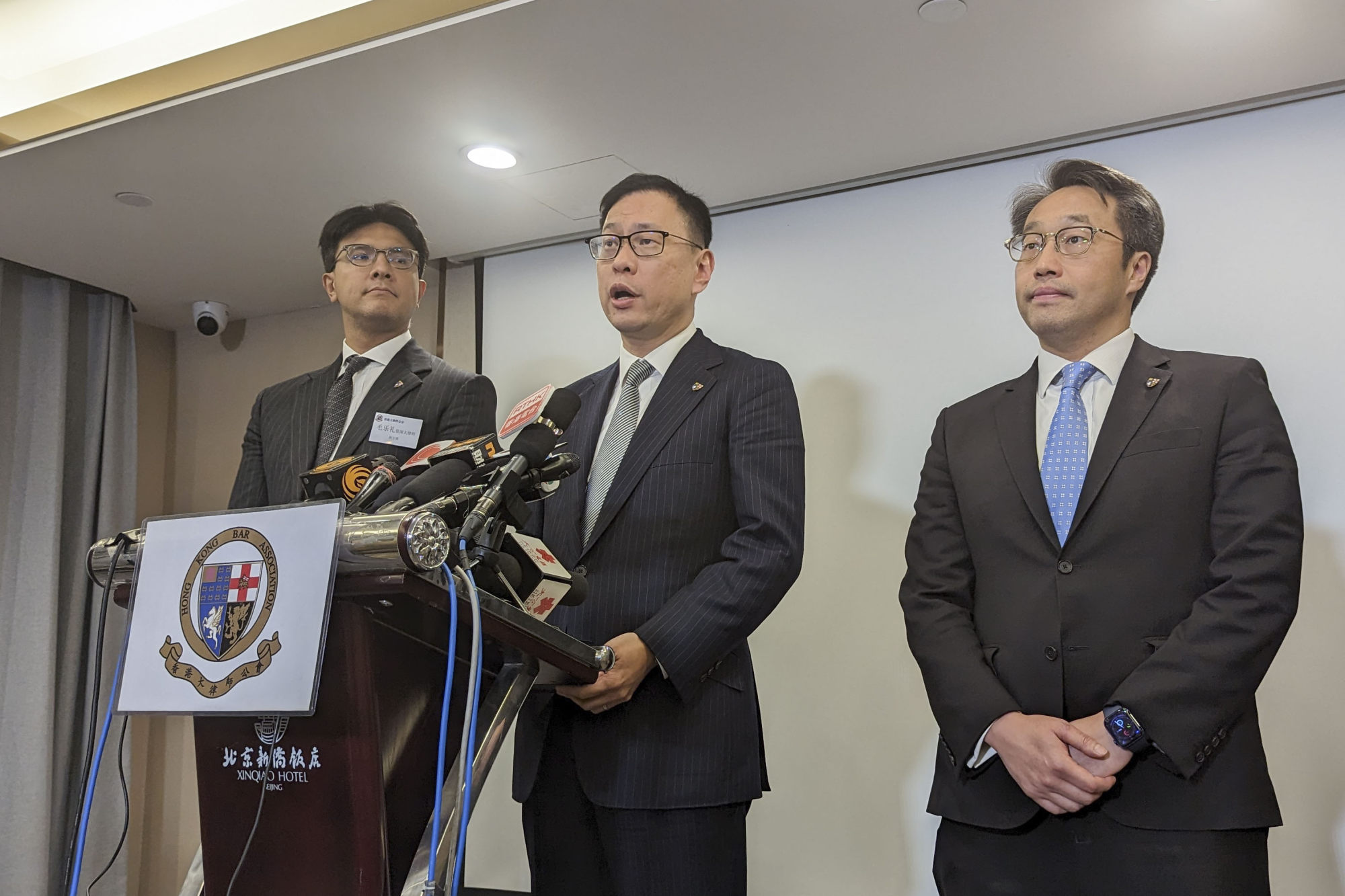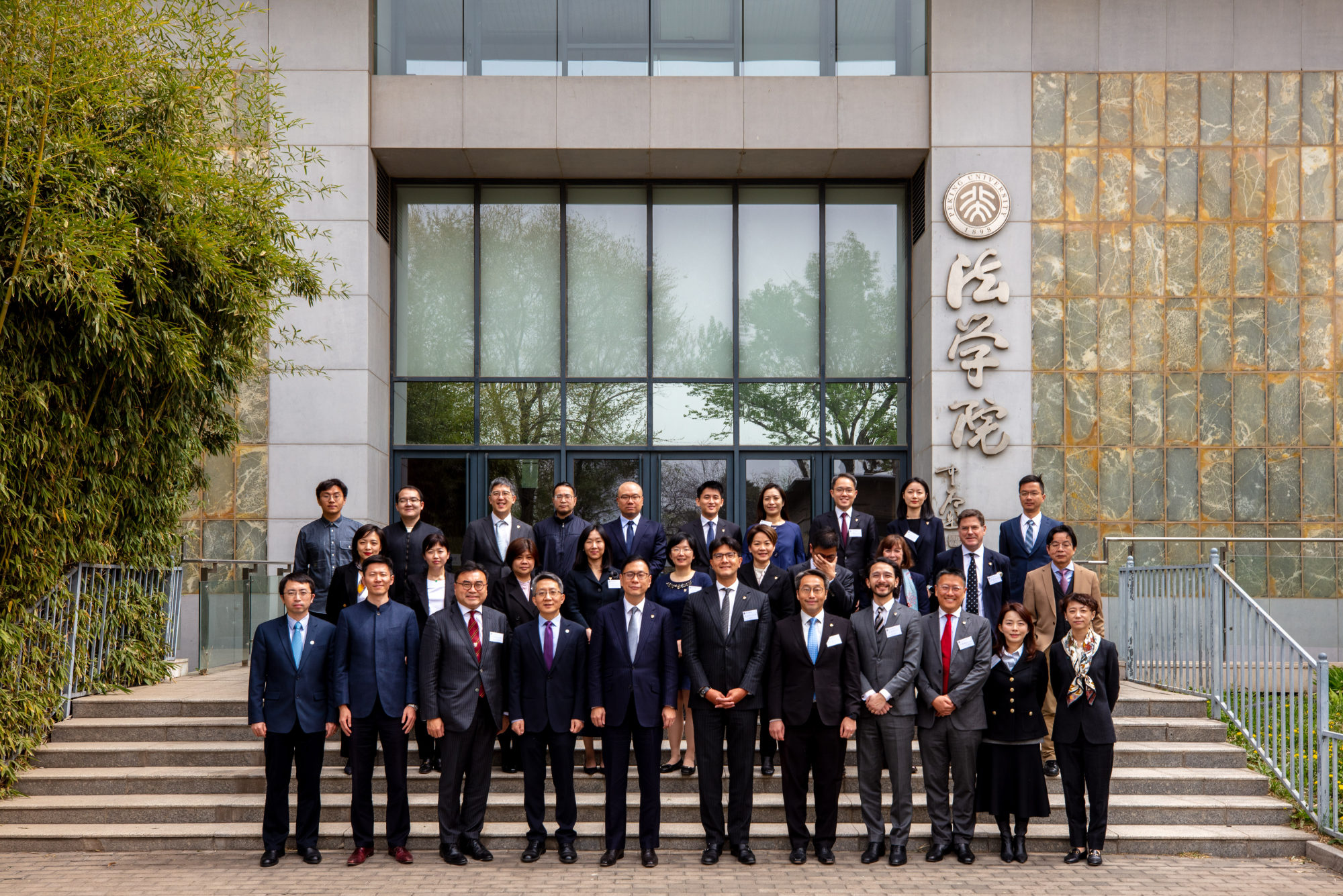
Independent judiciary key to Hong Kong upholding status as finance, dispute resolution hubs, Bar Association tells Beijing officials
- Bar Association delegation visiting Beijing for first time in five years meets officials from legal department of the Hong Kong and Macau Affairs Office
- Association chairman Victor Dawes says that during the meeting delegation underscored importance of a mature and independent judicial system to Hong Kong
The Bar Association has highlighted the importance of an independent judiciary in upholding Hong Kong’s role as a financial and dispute resolution hub during a meeting in Beijing with mainland Chinese officials overseeing the city’s affairs.
Association chairman Victor Dawes also told the media on Thursday that keeping up communications with mainland authorities was important in ensuring their understanding of the city’s common law system, while maintaining Hongkongers’ confidence in it.
An 18-member Bar Association delegation, led by Dawes, met officials from the legal department of the Hong Kong and Macau Affairs Office (HKMAO) on Thursday morning on the third part of their five-day ice-breaking trip to the capital.

Dawes said that during the meeting the delegation underscored the importance of a mature and independent judicial system to Hong Kong.
“A mature and independently operating judicial system has been truly invaluable for Hong Kong to successfully maintain itself as an international financial centre and dispute resolution centre,” Dawes told a press briefing.
“We made this point clearly to the legal department.”
The delegation also stressed that having an independent Bar was important both to Hong Kong and the nation because the city, as China’s only common law jurisdiction, played an indispensable role in the nation’s outreach efforts to overseas countries.
Dawes said the legal department officials acknowledged that the rule of law was Hong Kong’s “gilded signboard” that the association should safeguard. They had an exchange on the national security law, he added, without elaborating. He did not name the officials the delegation met.
Noting his earlier meeting with HKMAO director Xia Baolong in February, Dawes said Thursday’s talks were the second time within months he had met office officials.
“I believe this demonstrates the importance they have placed in communicating with the legal community in Hong Kong,” Dawes said.
The barrister group also paid a visit to Peking University, which the association has partnered with in giving common law lectures, as well as the Supreme People’s Court.
The delegation on Wednesday met Shen Chunyao, chairman of the legislative affairs committee and Basic Law Committee under the National People’s Congress Standing Committee, the country’s top legislative body.
The Bar had discussed with Shen the implementation of the 2020 national security law, as well as the pending local legislation under Article 23 of the Basic Law, the city’s mini-constitution. Dawes on Wednesday said the association told Shen that human rights protection should be taken into account in making the new legislation.
Article 23 requires Hong Kong to pass its own legislation to prohibit acts of treason, secession, sedition and subversion, some of which are not yet covered by the national security law imposed by Beijing nearly three years ago.

The Beijing visit, the first in five years, has been seen as a sign of improving ties between Beijing and the association, after relations soured in 2018 when outspoken human rights lawyer Philip Dykes took the helm.
Separately, the Department of Justice has responded to the association’s comments on proposed legal amendments requiring courts to obtain the chief executive’s permission before a foreign lawyer can take part in a national security case.
The department said whether a case was a national security one could be determined on the basis of the nature of the offences and evidence involved, even if criminal offences under the national security law were not involved.
“For instance, for civil cases, a judicial review of statutory powers exercised for safeguarding national security will apparently be considered as a national security case,” it said.
The association had earlier flagged that it would not always be clear-cut when a case concerned national security, especially when it did not directly involve offences under the legislation.
It also cast doubt on the review powers that the city leader would have, as an assessment mechanism could be started even after overseas counsel had been admitted to appear in a case under the proposed amendments.
The department said an applicant would only be granted ad hoc admission for a national security case if the chief executive had sufficient grounds for believing the applicant practising or acting as a barrister in it did not involve national security or would not be contrary to the interests of national security.
Owing to the nature of a decision involving national security matters, the department said, the chief executive was not obliged to give reasons or disclose the factors taken into account.
“Therefore, there is no real possibility of any legal challenge against the chief executive’s decisions based on factors or matters which [he] had or had not taken into account,” it said.
Additional reporting by Lilian Cheng

